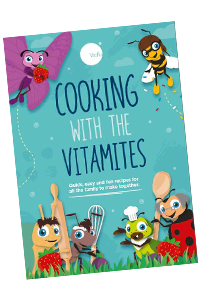These occasions often involve food and there is likely to be food available that your child cannot have. With a little pre-planning, there is no reason why they can’t enjoy these occasions and have as much fun as everyone else.
• If the birthday party is in a friend’s home, ask the friend’s parents/guardians what foods they
are making and suggest to them that you will provide low protein alternatives.
• If the birthday party is not in a friend’s home, contact the party venue in advance and explain that your child has a special diet and you will be providing low protein food for them to eat. Again, find out what they intend to provide for the children without PKU, so you can make suitable low protein alternatives.
• You can use different coloured plates or mats to identify low protein foods to help prevent mix-ups. For example, green plates or mats to indicate permitted foods and red for foods to avoid.
• Make sure the parents know that whilst children at the party without PKU should leave the special low-protein foods for your child, they will not come to any harm if they eat them.
• If any party games are being played, ask if the prizes are food-related. If the prizes are protein-containing foods, provide some permitted food prizes instead such as sweets or non-food related prizes such as stickers, colouring books or small toys.
• Ask if there will be a party bag and what may be in it, again provide suitable low protein alternatives to ensure your child does not miss out on any party treats!
• Provide a piece of low protein cake (iced if possible) to be eaten at the party and/or added to the party bag so your child doesn’t feel left out.
Read less


